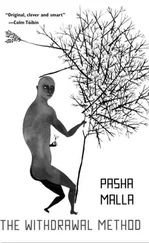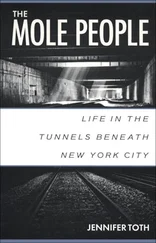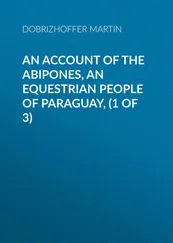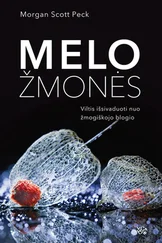Standing over her, the kid kicked his mom’s feet, she told him to sit down. He crawled up on the seat opposite and from his knees looked out the window and said, We aren’t going anywhere, we’ve been here forever, what are we doing. Sit down, Rupe, his mother said again, and he said, I am sitting down, and pulled himself up as tall as he could on his knees and stared at her stonefaced. She had nothing to say about that.
Normally the neighbourhood’s tinny din would drift up from the streets into the station. Instead the car filled with a silence that came thudding into the ears, at once thick and hollow, everywhere and empty. Outside the mist swirled past the windows of the train and over the roofs of Blackacres, between watertanks resembling the hulls of fogged-in ships, grabbing and releasing the phonelines and electric cables that lolled between rooftops. They were dead: the power was out, of course the train wasn’t moving.
Yet Debbie didn’t leave. Stray bits of mist nudged through the open doors. At the far end of the car the kid got down and went back to kicking his mother’s feet. I said stop it, she said, and he kicked her once more, and she said, I’m warning you, and he kicked her again, giggling — and at this she sprung forward and smacked his face. The kid held his cheek. He looked stunned. She shrunk away, seemed to reconsider, grabbed him roughly by the arm, and shook him. Are we supposed to walk to find your brother? she screamed. All the way all across the city, are we supposed to walk? The boy started crying. Rupe, no, said the woman and hauled him into her arms. I’m sorry, she whispered, kissing his face, his mouth.
Stiffly, Debbie watched. Sometimes at the Room she was privy to corporal parenting, almost always interrupted by a realization of witnesses. Then came excuses and embarrassment, the family slunk out the door in shame. But to this mother, now coddling her boy, Debbie seemed invisible, their world didn’t include her or her judgments. What was wrong with these people, didn’t they know they were in public? Had they no shame?
But what bothered Debbie most was feeling excluded and ignored. With nothing to say and no way to help, she slipped back onto the platform and down to the street. A Citywagon idled in the depot opposite. Debbie approached, waved. The driver, bundled in furs, face taut as a canvas and primed with powder and rouge, rolled down her window. Yes?
Hi, said Debbie. Sorry, could you help me?
Help you what? I can’t drive you anywhere. I have to get home.
In a rush Debbie explained her predicament, that her phone was out, that someone was missing and —
And so?
And she’s blind, said Debbie — which, really, might not have been untrue.
Oh, said the woman. Blind?
Yeah. All I need’s a ride to Canal Station, maybe the Redline’s running. . Listen, I can pay you, she said, producing her wallet as proof — the woman snickered — and shamefully pocketed it again.
Can’t you get your own car? said the woman.
I don’t have a Citycard. I don’t know anyone in the um, men’s league.
Yeah, see, my husband. . The woman trailed off.
The engine idled, chugging exhaust.
Debbie felt cornered. She sighed, could hear the self-disgust in her voice as she said, Listen, I write for Isa Lanyess —
Oh? said the woman. Sudden interest glinted in her eyes.
Debbie felt filthy, but blundered on: Yeah, and if you give me your information I bet this is just the kind of feel-good story she’d love. You know, power out in the Zone, kind benevolent citizen makes generous act. .
Benevolent, murmured the woman. I like it!
She was already out of the car, handing Debbie a business card, eyes glazed with fantasy, projecting herself onto her friends’ TV screens, basking in their awe and envy. She spoke in a rush, every moment here delayed her taste of fame: Keep the engine running, you won’t need to log in. There’s a lot by Canal Station, park it there. Or I’m going to have to pay for it, understand?
Of course, said Debbie, sliding behind the wheel. I appreciate this so much.
And I’ll hear from you soon? About the show?
Debbie nodded. You bet.
Gosh, little old me on In the Know , cooed the woman, who would have guessed?
 EARL STOOD at the top of a staircase that vanished into People Park as a swimming ladder into a frozen pond. The fog collecting on the common didn’t shift or swirl or embody any of the vaporous properties it did elsewhere in the city, but seemed instead a solid stagnant mass. Down there somewhere was the gazebo — and, with luck, Gip’s knapsack and his meds. The air was icy, the light a sort of non-light. It had stopped snowing, what had fallen layered the ground, pebbly and granular, half an inch thick.
EARL STOOD at the top of a staircase that vanished into People Park as a swimming ladder into a frozen pond. The fog collecting on the common didn’t shift or swirl or embody any of the vaporous properties it did elsewhere in the city, but seemed instead a solid stagnant mass. Down there somewhere was the gazebo — and, with luck, Gip’s knapsack and his meds. The air was icy, the light a sort of non-light. It had stopped snowing, what had fallen layered the ground, pebbly and granular, half an inch thick.
Pearl imagined herself heading down into the misty park, swallowed up, never coming out. But that was ridiculous. She dangled a toe until a snowy stair responded with a squeak and crunch. And down she went, tentatively, by feel and sound, imagining Gip and Kellogg and Elsie-Anne browsing the Museum’s exhibits, her husband flapping his guidebook and raving about the place as if it hosted miracles.
A dozen careful steps later the stairs flattened into a Scenic Vista, the fog so thick she crossed the platform at a crouch, feeling ahead with her hands. In the snow her fingers quickly went cold and stiff, she brought them to her mouth to blow on them, reached out again — but what if she encountered something cold and wet and fleshy lying on the deck. . Pearl recoiled. A chill passed through her, deeper than the cold, it iced her heart.
Kneeling, she checked her watch: dead, the hands stuck at nine and twelve. She thought of Gip. Her bad knee twitched. In inclement weather and with stress, acting as a vane or gauge, the restitched ligaments often tightened. Though this felt different, not stiffness or pain, but a strange, electrical tingling.
She stood, shook her leg out. Her knee was swollen to twice its normal size. Water retention usually came on over hours, if not days, and only after a workout. She hadn’t done much lately but sleep and sit and stand. Fluid seemed to be collecting at an abnormally drastic rate, and the joint pulsed, and despite the frigid air wasn’t cold at all, but oddly warm and soft, almost spongy — and it was inflating.
Her jeans stretched, split, the denim tore with a zippery sound and out the knee crowned. Pearl stumbled, the entire leg was numb, she had to hop. Finding the deck’s railing she leaned against it: the knee had gone hydrotic, big as a toddler’s head. Weakly Pearl called for help, her words slipped into the fog and were lost.
She waited. There was no pain. Instead the numbing fizzled into lightness. And the knee, a globelike bloom, began lifting, and behind it went her leg, unencumbered by will or gravity. The rest of her body followed: her right foot peeled from the deck, there was a weightlessness and ease to the whole thing. Pearl went limp, her worry drained into the fog. This must be a dream, she thought. She never dreamed, now she felt herself a tourist in her own subconscious. What to do but give herself over to its magic? And so she floated, her kneecap the puffed-up bladder of a hot air balloon, the rest of her body dangling beneath, out into the pillowy air over the common.

THE FIGURE IS CLOSE enough that on its face Calum can make out shadowy splotches of eyes, a nose, a mouth. Its clothes are white. And as it advances it draws a curtain upon the world — no, a curtain would be something. This is just oblivion: everything behind it is swept from existence. The bird, the pigeon or dove, swoops down from somewhere, the airy splash of its wings, looping up and circling above. Calum tries not to think of vultures. And still the figure approaches, sweeping with it that great wave of nothingness. It is a man, a brownskinned baldheaded man in white moving with brisk strides, and as he closes in Calum sees upon this man’s face, grim and dark as a ditch: a grin.
Читать дальше
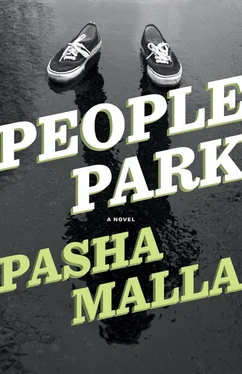
 EARL STOOD at the top of a staircase that vanished into People Park as a swimming ladder into a frozen pond. The fog collecting on the common didn’t shift or swirl or embody any of the vaporous properties it did elsewhere in the city, but seemed instead a solid stagnant mass. Down there somewhere was the gazebo — and, with luck, Gip’s knapsack and his meds. The air was icy, the light a sort of non-light. It had stopped snowing, what had fallen layered the ground, pebbly and granular, half an inch thick.
EARL STOOD at the top of a staircase that vanished into People Park as a swimming ladder into a frozen pond. The fog collecting on the common didn’t shift or swirl or embody any of the vaporous properties it did elsewhere in the city, but seemed instead a solid stagnant mass. Down there somewhere was the gazebo — and, with luck, Gip’s knapsack and his meds. The air was icy, the light a sort of non-light. It had stopped snowing, what had fallen layered the ground, pebbly and granular, half an inch thick.
